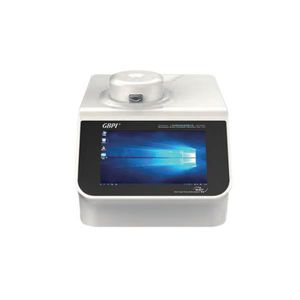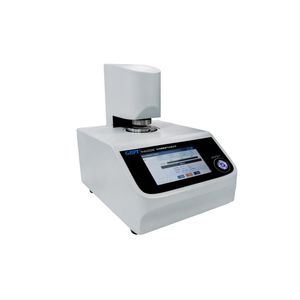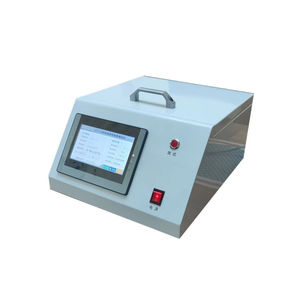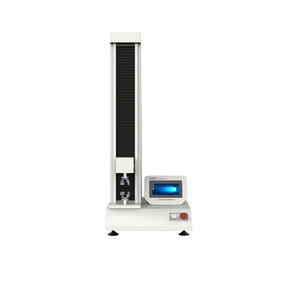
- Metrology - Laboratory
- Analytical Instrumentation
- DSC calorimeter
- Guangzhou Biaoji Packaging Equipment Co., Ltd
DSC calorimeter GB-DSC100A
Add to favorites
Compare this product
Characteristics
- Options
- DSC
Description
DSC Differential Scanning Calorimeter to test Thermal Performance of Battery Packaging Separator
Standard
U L 2591, INASA TM 2010-2l6099, etc
As an important component of lithium batteries, the separator is of great significance to block electrons, prevent short circuits and ensure internal ion penetration to make the battery run efficiently, stably and safely. Although the separator itself does not undergo any electrochemical reactions, its structure and performance affect the interface structure and internal resistance of the battery, which in turn affects the overall capacity, charge and discharge current density, cycle performance, and safety of the battery. Therefore, the comprehensive performance of the battery can be effectively improved through the analysis, testing and regulation of various performance parameters of the lithium battery separator.
Referring to the regulations of the United States Advanced Battery Consortium (USABC) on the performance parameters of lithium-ion battery separators, the performance of battery separators can be roughly divided into four aspects: physical and chemical properties, mechanical properties, thermal properties and electrochemical properties.
Among them, physical and chemical properties include thickness, porosity, average pore size and pore size distribution, air permeability, tortuosity, wettability, liquid absorption rate, and chemical stability. Mechanical properties mainly include 3 parameters of puncture strength, mixed puncture strength and tensile strength. Thermal properties include 3 parameters of thermal closure temperature, melting rupture temperature and thermal shrinkage rate.
Catalogs
No catalogs are available for this product.
See all of Guangzhou Biaoji Packaging Equipment Co., Ltd‘s catalogsOther Guangzhou Biaoji Packaging Equipment Co., Ltd products
Battery diaphragm tester series
Related Searches
- Gas analyser
- Concentration analyser
- Liquids analyser
- Desktop analyzer
- Automated analyzer
- Dust analyzer
- Spectrometer
- Water analyser
- Oxygen analyser
- Digital testing system
- Industrial testing system
- NDIR analyzer
- Spectrophotometer
- Automatic testing system
- Manual test kit
- Analyser for the food industry
- Carbon dioxide analyser
- Tester with LCD screen
- Quality control analyser
- Benchtop testing system
*Prices are pre-tax. They exclude delivery charges and customs duties and do not include additional charges for installation or activation options. Prices are indicative only and may vary by country, with changes to the cost of raw materials and exchange rates.










